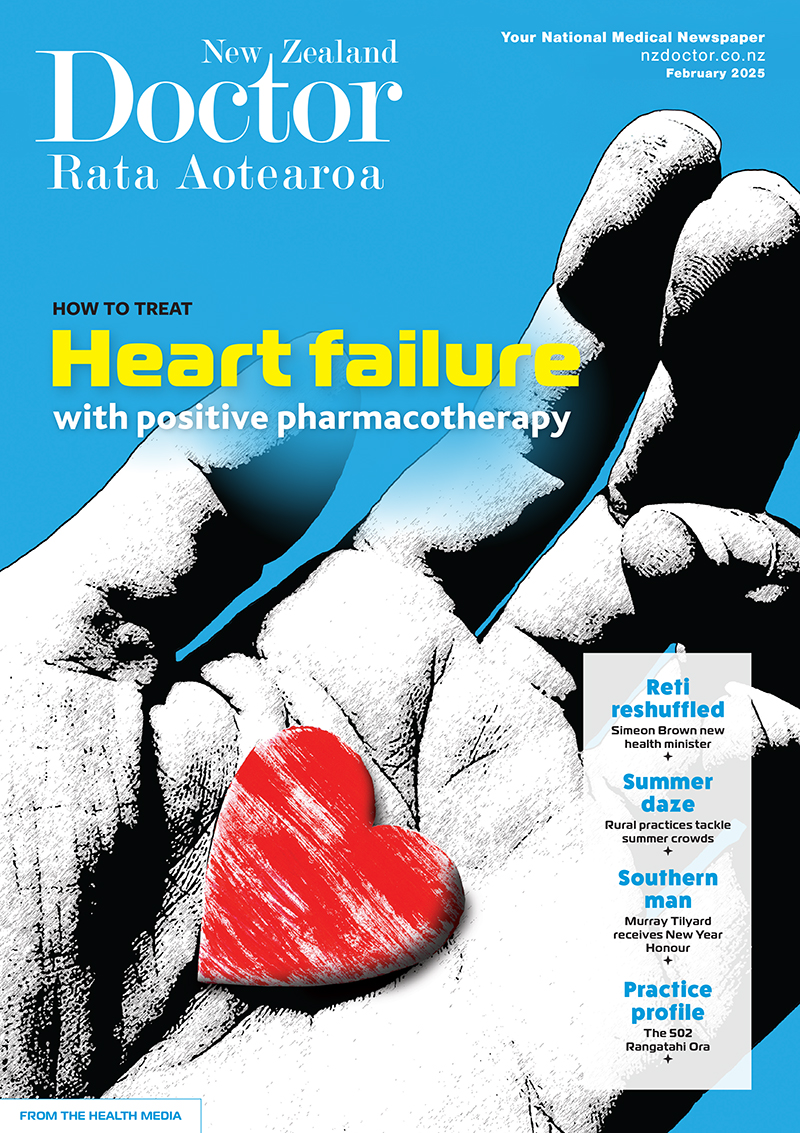Pharmacist prescribers Linda Bryant and Leanne Te Karu discuss positive polypharmacy for heart failure. Current evidence shows the intensive implementation of four medications offers the greatest benefit to most patients with heart failure, with significant reductions in cardiovascular mortality, heart failure hospitalisations and all-cause mortality
Prevention is better than cure - Why we need to keep investing in public health
Prevention is better than cure - Why we need to keep investing in public health

Public health leaders are urging the Government to reverse large, planned cuts to national public health services before doing severe harm to health and the functioning of the healthcare system.
We are writing to voice our support for public health and health promotion in Aotearoa New Zealand—critical areas currently threatened by funding cuts, misunderstanding, and political interference.
Public health is about more than treating illness; it’s about preventing it. While our hospitals are essential, a strong focus on prevention ensures long-term well-being, reduces healthcare costs, and saves lives.
This means creating environments where people can make healthy choices, addressing root causes of illness, and working alongside communities to build healthier futures.
Recent comments about the scope of public health and “cost cutting measures” from the Honourable Dr Shane Reti (RNZ 29 Nov., 2024) and Health New Zealand Chief Executive Margie Apa (RNZ 4 Dec., 2024) appear to overlook the breadth, evidence, and legislative foundation of public health practice.
Public health is not a luxury; it’s a necessity. It delivers results that far outlast individual governments, guided by values such as equity, community participation, and evidence-based approaches.
Why Public Health Matters
Public health saves many more lives than hospital systems do.
Initiatives such as vaccination programs, policies to reduce harm from tobacco, alcohol and unhealthy food, and safety regulations have prevented countless chronic diseases, injuries and infectious outbreaks.
For example, New Zealand’s Covid-19 public health response saved up to 20,000 lives. These efforts also save money by reducing the need for costly medical treatments down the track.
Importantly, modern public health isn’t about telling people what to do—it’s about empowering individuals and communities.
Māori, Pacific, Asian, and government-based health promoters collaborate with communities to improve health outcomes in areas like mental health, suicide prevention, obesity and harm reduction for drugs and alcohol.
These efforts provide people with knowledge, options, and support to make their own decisions.
A Path to Equity
At the heart of public health in Aotearoa New Zealand is Te Tiriti o Waitangi, a guiding principle for addressing health inequities. Public health programmes tackle the social determinants of health—like housing, education, and income—which disproportionately affect Māori, Pacific, Asian and other vulnerable populations.
Investing in public health creates a fairer, more equitable society where everyone has a chance to thrive.
We’ve seen the impact of culturally responsive public health initiatives. During the Covid-19 pandemic, Māori and Pacific organisations mobilised to protect their communities—proving the power of community-led, culturally appropriate health responses.
This kind of partnership builds resilience and contributes to a healthier, more productive nation.
An Investment in Our Future
Currently, only 1.5 per cent of New Zealand’s $30 billion health budget is allocated to public health—despite prevention being far more cost-effective than treatment.
This is a missed opportunity. Public health is not only a moral responsibility but a practical investment. It delivers healthier lives, reduces pressure on hospitals, and boosts our economy by creating a healthier, more engaged workforce.
As we begin 2025, we urge the Government to prioritise public health and health promotion. Investing in prevention today means a stronger, healthier, and more equitable future for all of Aotearoa New Zealand.
Those Supporting this statement include:
Associate Professor Richard Egan
Public Health, University of Otago
Professor Collin Tukuitonga
University of Auckland
Professor Boyd Swinburn
University of Auckland / Health Coalition Aotearoa
Tevita Funaki
MNZM Group CEO / The Fono
Vishal Rishi
CEO, The Asian Network Inc. (TANI)
Jacqui Harema
Chief Executive Officer Hāpai Te Hauora
Professor Michael Baker
Department of Public Health, University of Otago



